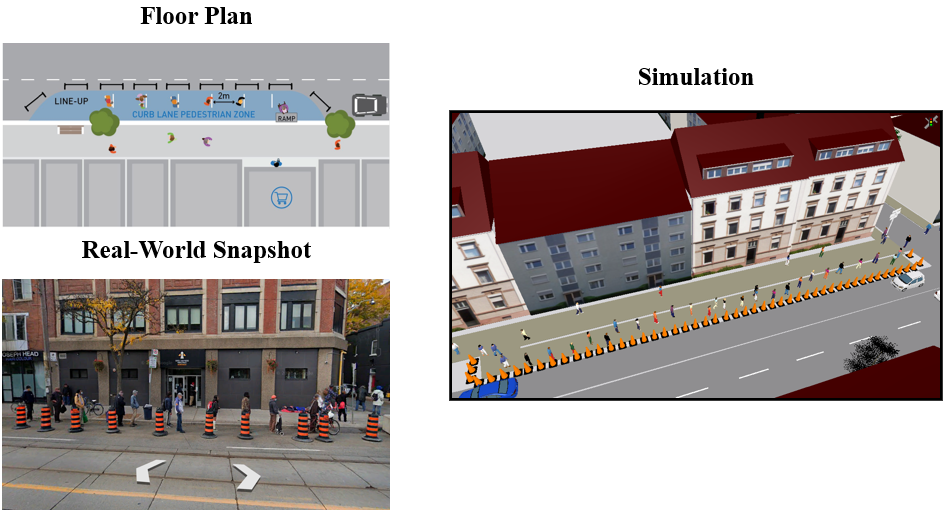
Emergency Management
Pedestrian mobility interventions during a Pandemic
Cities worldwide rapidly introduced various mobility interventions—such as sidewalk extensions and outdoor dining areas—to help people maintain physical distancing while accessing essential services. Despite these efforts, limited quantitative research exists on how these interventions affect distancing.
In response, this study used a simulation environment (PTV VisWalk) to model two corridors in Toronto under four scenarios: with/without sidewalk expansion for patio and with/without curb lane pedestrian zones. The results revealed that while curb lane pedestrian zones significantly improved physical distancing, sidewalk expansions for patios actually reduced it. These findings underscore the importance of using quantitative measures of effectiveness to evaluate mobility interventions and guide decision-making for safer street designs.

